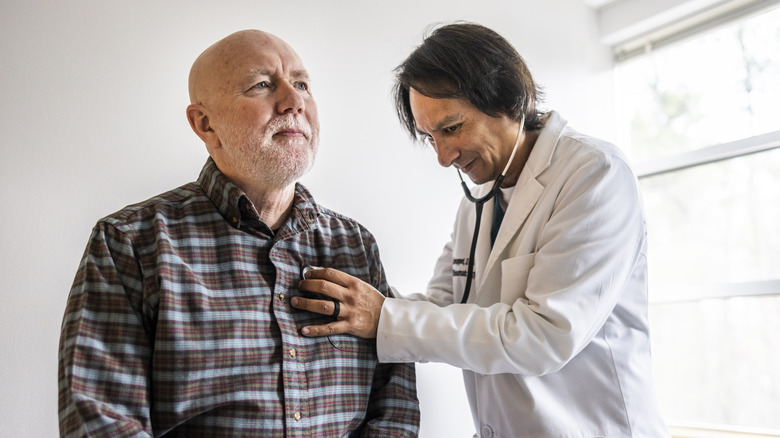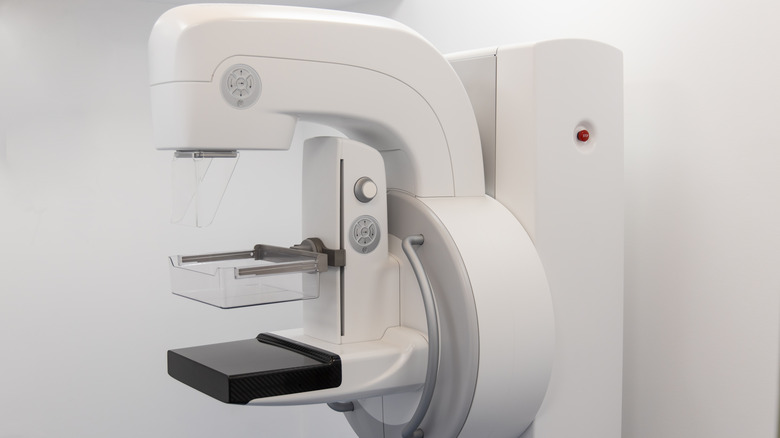Why Men Over 50 Should Be Concerned About Breast Cancer
Breast cancer is typically associated with women, but Yale Medicine says 1% of breast cancer diagnoses are men. Men have breast tissue as well, so tumors can develop within these glandular, connective, and fatty tissues. Men might not notice changes in their breast tissue, especially since they don't have as much of this tissue as women. That's why men aren't diagnosed with breast cancer until it has advanced.
Dr. Catherine Hwang, a radiation oncologist for the AdventHealth Cancer Institute, told Health Digest that the risk of men getting breast cancer increases with age. The American Cancer Society says the average age for a man to be diagnosed with breast cancer is 72.
If you're over 50, Hwang suggests periodically checking your breast tissue for any abnormalities. "Common signs of breast cancer in men include a lump or swelling of the breast or armpit; redness, irritation, or dimpling of the overlying skin; nipple discharge or distortion," Hwang said. Older men should also be aware of how their lifestyle, genetics, and health history factor into their risk of breast cancer.
Risk factors for breast cancer in men
Some risk factors for breast cancer in men are uncontrollable, such as age or a family history of the disease. The BRCA1 and BRCA2 genetic mutations and other inherited mutations also increase your risk. Your health history can also affect your risk of breast cancer. Receiving radiation treatment in the chest area for cancer could increase your risk of breast cancer as well.
Your risk of breast cancer also depends on the hormone balance in your body. Men treated with estrogen for prostate cancer could increase their breast cancer risk. Some men have an extra X chromosome (called Klinefelter syndrome), which means they have higher amounts of estrogen and lower testosterone. Liver diseases such as cirrhosis affect your hormone levels similarly and increase your risk of breast cancer.
Some risk factors you can control, such as keeping an eye on your weight. The American Cancer Society says fat cells transform male sex hormones into female hormones, and this excess of female hormones increases your breast cancer risk (here are some foods to eat and avoid for your breast health). Excessive alcohol consumption disrupts hormone levels by stressing the liver.
Should men get mammograms?
Women are told to check their breasts often and get annual mammograms to screen for breast cancer. However, regular mammograms aren't recommended for men because there are so few cases, and the risks (from radiation) outweigh the benefits, according to The Conversation. Instead, mammograms and sonograms are used to diagnose breast cancer in men when a lump is suspicious.
The American Cancer Society suggests that men (and women) consider genetic testing for the BRCA mutation if they have a family history of breast cancer, prostate cancer, ovarian cancer, or pancreatic cancer (here's what to expect during genetic testing). Men at high risk for breast cancer can also work with their medical providers to monitor their breasts and manage their risks through such measures as losing weight, exercising, eating healthy, and limiting alcohol. Transgender males should consult with their doctors about breast cancer screening, and those who have had gender-affirming chest surgery should be aware that breast cancer, while rare, is still possible.


